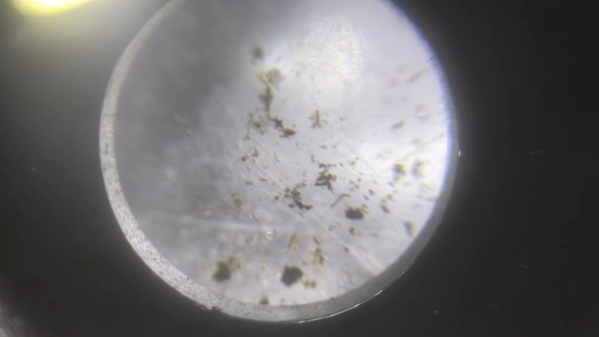[Robert Murray-Smith] wanted to recreate how some ancient microscopes worked: with a drop of water as a lens. The idea is that the meniscus of a drop of water will work as a lens. This works because of surface tension and by controlling the attraction of the water to the surface, you can actually form convex and concave surfaces.
What’s interesting is that this doesn’t require a lot of equipment. Some plastic, a hole punch, some pens, a flashlight, and some other odds and ends. Then it’s just a matter of grabbing some puddle water and examining the critters inside. Of course, with a single lens, these are more properly magnifying glasses. Some claim that people in China built such instruments thousands of years ago. [Robert] mentions [Antonie van Leeuwenhoek] as the father of the microscope, although he wasn’t the first to build such a device. He did create amazing glass lenses using a method he kept secret but has been worked out using modern science.
It is hard to see much through the camera, but it clearly was magnifying. Not a bad little rainy day kid’s project since you probably have everything you need on hand. We wonder what other readily-available things you could image with a device like this.
Of course, if you want to build a real microscope, the designs are out there. You can even make one using — mostly — LEGO.











